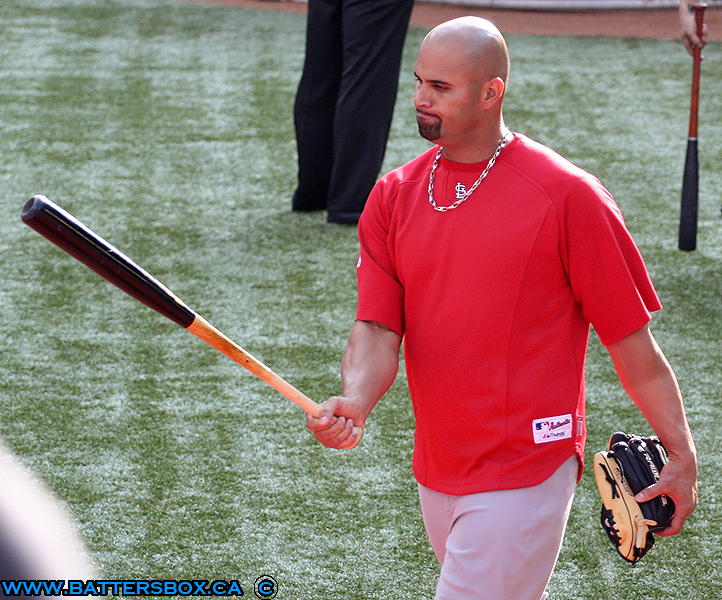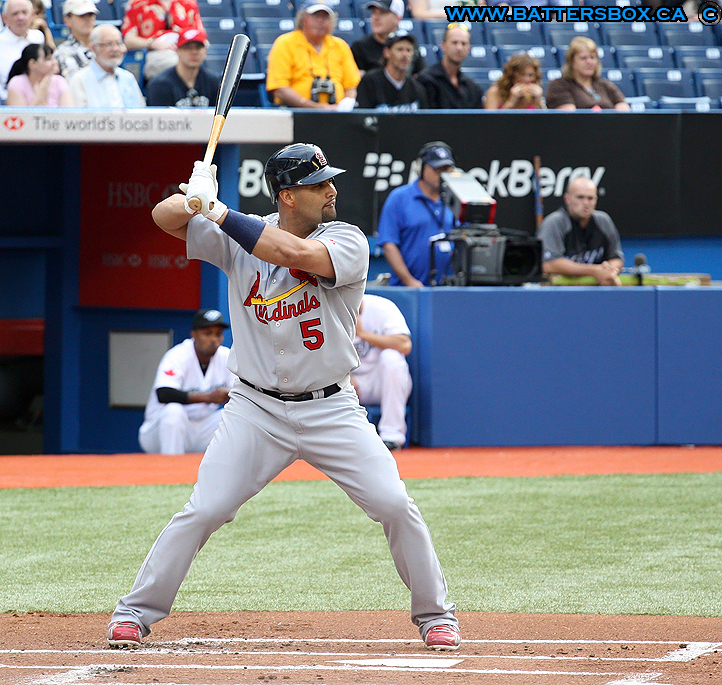
Albert Pujols' game face can be seen as he stares down his bat during batting practice at the Dome June 24.

Pujols bats against Brandon Morrow but only managed an infield single in four at-bats as the Cardinals were blanked by the Blue Jays 5-0.
According to Sports Illustrated, the Cardinals floated a nine year offer worth $200 million to Pujols. However, it's believed the 31 year-old slugger is looking to at least top Alex Rodriguez's 10 year, $275 million contract with the New York Yankees. Pujols maintains he wants to remain in Cardinal red but "it's not up to him". In 2010, Pujols hit .312/.414/.596 with 39 doubles, one triple, 42 home runs, 118 runs batted in and 14 stolen bases. Over his 10 seasons, he's a career .331 hitter with a 1.050 OPS and has belted 408 home runs. Is Pujols worth a $300 million dollar deal? That's the call the Cards brass will have to make.
In other news...
- The Tigers Miguel Cabrera gets busted for driving under the influence.
- The Rays Manny Ramirez feels he has something to prove.
- The White Sox Mark Buehrle is not backing down on what he said about Philadelphia Eagles quarterback Michael Vick.
- The Reds Edinson Volquez is not heading to arbitration.





